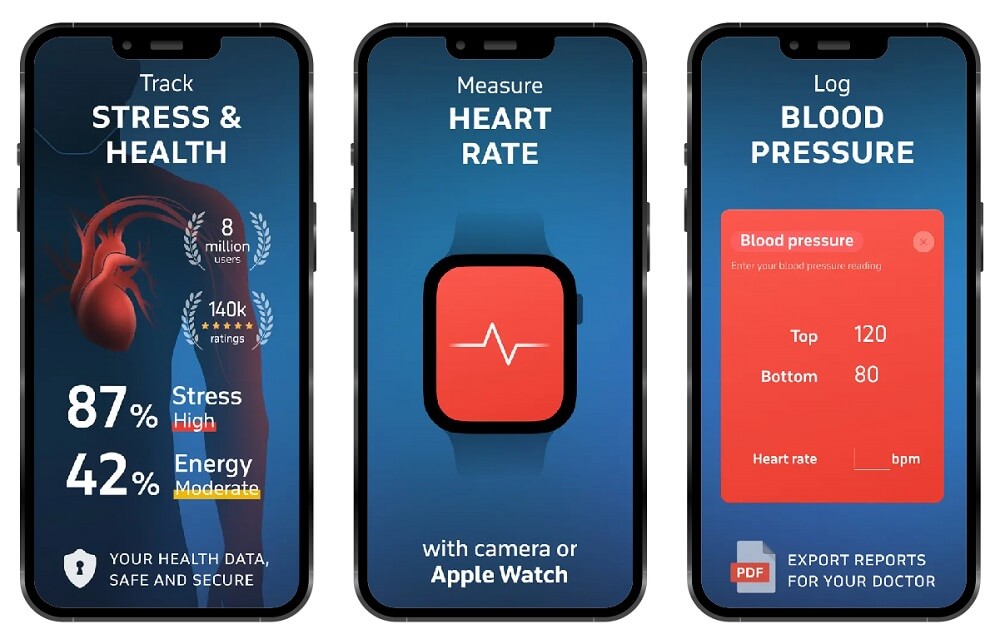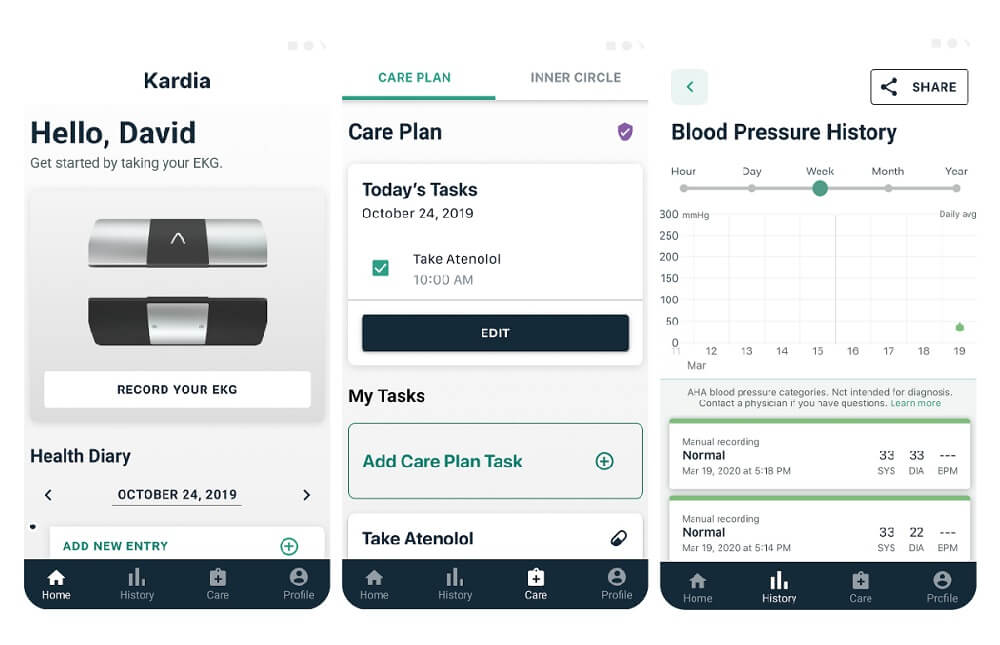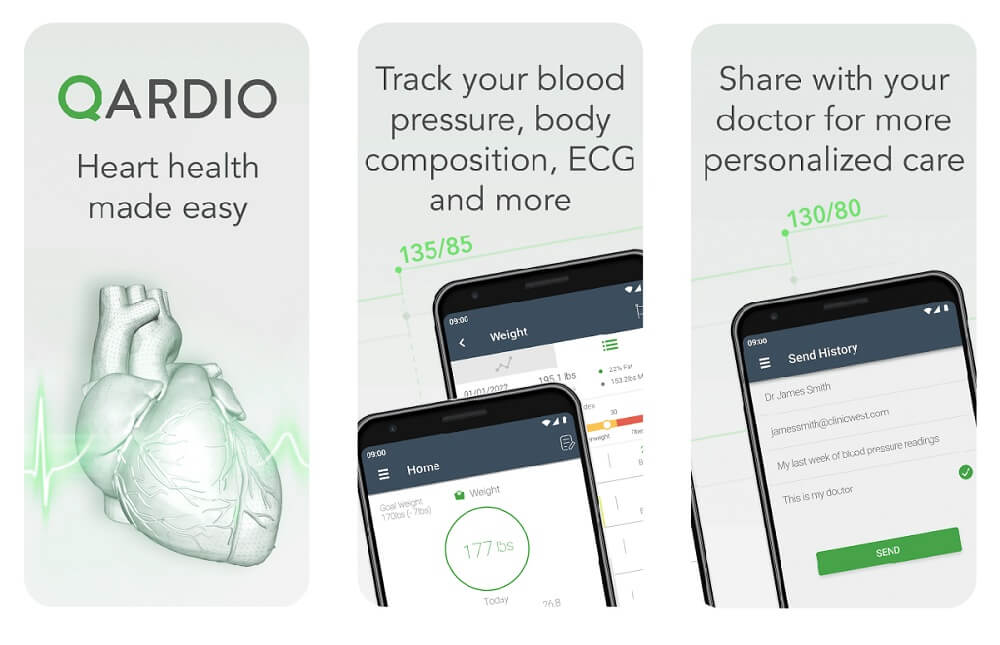Vital signs are a group of four to six key measurements that reflect your body’s most basic functions. These measurements give healthcare professionals important clues about your overall health and well-being. There are four main vital signs regularly monitored by medical professionals include:
- Body Temperature: This measures how hot or cold your body is. Your body normally regulates its temperature within a narrow range. A fever, or abnormally high body temperature, can be caused by factors like infection, inflammation, or certain medications. Conversely, a hypothermic temperature, or abnormally low body temperature, can be dangerous and may indicate a serious underlying medical condition.
- Pulse Rate: The number of times your heart beats per minute. Your pulse can be taken at various points on your body, including your wrist, neck, or groin. A normal pulse rate varies depending on age, activity level, and overall health. However, a significantly high or low pulse rate could indicate a heart problem or other underlying medical condition.
- Respiratory Rate: This is the number of breaths you take per minute. You can measure your respiratory rate by counting the times your chest rises and falls over a minute. A normal respiratory rate also varies depending on age and activity level. However, a rapid or shallow breathing rate could indicate respiratory distress or other health problems.
- Blood pressure: The force exerted by blood against the walls of your arteries is known as blood pressure. It is typically recorded as systolic pressure (when your heart beats) and diastolic pressure (the pressure between heartbeats). Normal blood pressure varies depending on age and other health factors. However, consistently high blood pressure, or hypertension, is considered a risk for heart disease, stroke, and other health problems.
Normal ranges for these signs vary by age, sex, weight, exercise capability, and overall health. Doctors will consider these factors when evaluating your vital signs.
Importance of Vital Signs
- They can provide clues about underlying medical conditions. For example, a high temperature may indicate an infection like the flu or a urinary tract infection (UTI). A rapid heart rate could indicate dehydration, anemia, or an overactive thyroid. Slow breathing can indicate brain, lung, or nervous system problems.
- They can help track your progress over time. If you are being treated for a medical condition, such as pneumonia or heart failure, your doctor will monitor your vital signs to see how you respond to treatment. Tracking changes in your vital signs can help your doctor determine if your treatment plan is effective or if adjustments are needed.
- They can help identify emergencies. Certain vital sign readings can indicate a life-threatening condition. For example, a high or low body temperature, extremely high or low heart rate, rapid or slow breathing, or severely high blood pressure could all be signs of a medical emergency. Early detection and treatment of these conditions can improve a person’s chances of a positive outcome.
Types of Vital Signs Apps
Below are the two types of vital signs apps available to monitor your health
Trackers
These apps allow you to log your vital signs readings, such as blood pressure, heart rate, blood oxygen, and weight. This can help spot trends and monitor your health over time. Many tracker apps are available, both free and paid.
Measurement Tools
These apps use your phone’s sensors to measure your vital signs. However, it is important to note that these apps are not always accurate and should not be used as a substitute for medical devices. Some measurement tools use your phone’s camera to measure your heart rate or blood oxygen levels. Others use the microphone to measure your breathing rate.
Factors to Consider While Choosing Vital Signs App
Vital signs apps have become increasingly popular, offering a convenient way to track your health at home. But with so many options available, choosing the right app can be overwhelming. Three key factors rise to the top: accuracy, ease of use, and privacy. Let’s delve deeper into these to ensure you get the most out of your vital signs app experience.
1. Accuracy: The Bedrock of Trust
Imagine relying on an app to measure your heart rate, only to find out later that it’s significantly off. This creates unnecessary worry and hinders your ability to monitor your health accurately. In the realm of vital signs apps, accuracy is paramount.
Here’s why accuracy matters:
- Early Detection of Issues: Vital signs like heart rate and blood pressure can offer early clues about potential health concerns. Inaccurate readings can mask underlying problems, delaying necessary medical attention.
- Informed Decision-making: Tracking trends in your vital signs allows you to make informed decisions about your health. Inaccurate data can lead to misinterpretations and potentially detrimental actions.
- Peace of Mind: Knowing your app reflects your true health status fosters peace of mind.
How To Ensure Accuracy?
- Look for validation: Seek apps validated by reputable organizations like the Association for the Advancement of Medical Instrumentation (AAMI) or similar entities in your region. These organizations test apps for accuracy against established medical devices.
- Understand limitations: Many vital signs apps, particularly those using phone sensors for non-invasive measurements (like heart rate through the camera), may have limitations. These apps might be a good starting point but should differ from professional medical equipment or evaluations.
2. Simplicity is Key: User-Friendly Design
The best app is the one you’ll use. A user-friendly interface is crucial for consistent data collection and reliable health monitoring. Here’s what to watch out for:
- Intuitive Navigation: The app should be easy to navigate with proper instructions and menus. Recording vital signs and accessing past data should be effortless.
- Data Visualization: Charts, graphs, and clear trends can make understanding your health data a breeze.
- Compatibility: Ensure the app is compatible with your phone’s operating system and offers a smooth experience.
Benefits of a User-friendly Design
- Consistent Data Collection: When using the app becomes second nature, you’re more likely to capture regular readings, providing valuable insights into your overall health.
- Enhanced Engagement: A well-designed app keeps you engaged in your health journey, encouraging continued monitoring.
- Reduced Frustration: A user-friendly interface eliminates unnecessary frustration, making the app a helpful tool rather than a burden.
3. Protecting Your Health Data: Privacy Matters
Your health data is sensitive, and choosing an app that prioritizes privacy is essential. Here are key questions to consider:
- Data Collection: Understand what data the app collects (e.g., only vital signs or additional information).
- Data Storage: Where and how is your data stored? Choose apps that provide secure cloud storage with strong encryption protocols.
- Data sharing: Does the app share your data with third parties? If so, understand who they are and what the data is used for.
Why Privacy Matters?
- Confidentiality: You have the right to manage your health information. A transparent and secure app allows you to maintain control over your data.
- Security: Data breaches and unauthorized access can be detrimental. Choose an app with robust security measures.
- Peace of mind: Knowing your protected data allows you to focus on utilizing the app for its intended purpose – improving your well-being.
Top 5 vital signs apps by performance 2024
Here are some popular vital signs apps that consistently receive high ratings for accuracy, ease of use, and privacy:
Welltory

It stands out for its focus on offering a holistic view of your health. It goes beyond simply tracking vital signs like heart rate and blood pressure; it also incorporates sleep patterns, activity levels, and mood into its analysis. The app leverages smart algorithms to analyze this comprehensive data set and provides personalized insights and recommendations. These insights can be incredibly helpful in guiding you toward a healthier lifestyle. For example, Welltory might identify a correlation between your sleep quality and daily activity levels, prompting you to adjust your exercise routine for better sleep. The app also offers educational resources and personalized coaching plans (available in paid subscriptions) to empower you to make positive changes that can significantly improve your overall well-being. Welltory is a great option for individuals seeking a well-rounded approach to health management.
Kardia by Alivecor

It caters specifically to heart health, offering a mobile ECG device that connects to your smartphone to record a medical-grade EKG. This can be a valuable tool for people with a history of heart rhythm problems, such as atrial fibrillation (AFib), or those at an increased risk of developing them. AFib is a common heart condition characterized by a quivering or irregular heartbeat in the heart’s upper chambers. It can increase your risk of stroke, heart failure, and other serious complications. Early detection and treatment of AFib are crucial for preventing these complications. Kardia mobile EKG device lets you conveniently record your heart rhythm at home or anywhere. The app instantly analyzes your EKG readings, identifying potential arrhythmias like AFib. This can prompt you to seek immediate medical attention, potentially saving your life. Kardia can also be a helpful tool for people who experience occasional heart palpitations or other heart-related symptoms. By capturing your heart rhythm during these episodes, you can share the EKG recording with your doctor to help them diagnose the cause of your symptoms. However, it’s important to note that the Kardia app requires the purchase of a separate AliveCor device, which adds an extra cost consideration.
Qardio

It takes a multi-device approach to vital signs monitoring, offering a suite of connected devices that work seamlessly with their app. This allows you to track a comprehensive range of vital signs, including weight, blood pressure, heart rhythm, and activity levels, all in one place. Their devices include:
- QardioArm: A wireless blood pressure monitor that uses Bluetooth technology to transmit your readings to the Qardio app.
- QardioBase: A smart scale that measures your weight, body composition, and BMI.
- QardioCore: A multi-sensor device worn on your chest or arm to track your heart rhythm, activity levels, sleep patterns, and respiratory rate. The Qardio app provides in-depth data analysis and personalized health insights to help you understand your health trends and make informed decisions about your well-being. For example, the app might identify a correlation between your sleep quality and blood pressure readings, prompting you to improve your sleep hygiene to manage your blood pressure more effectively. Additionally, Qardio offers a subscription service that provides access to advanced features like health coaching and medication reminders. While Qardio offers a free app similar to AliveCor, it requires the purchase of separate devices to access all the app’s features.
- Instant Blood Pressure offers a convenient way to track your blood pressure at home or on the go. The app uses your phone’s camera to measure blood pressure through Photoplethysmography (PPG). While not a replacement for a traditional blood pressure cuff, Instant Blood Pressure can be useful for monitoring trends over time and identifying potential issues. It’s important to remember that this app’s accuracy may be different depending on factors like skin tone and phone model.
- Oxygen Plus Pulse Oximeter is another app that leverages your phone’s camera for health measurements. It combines the camera and flashlight to estimate your blood oxygen saturation (SpO2) and pulse rate. While not a medical-grade device, Oxygen Plus Pulse Oximeters are useful for monitoring oxygen levels and heart rate, especially if you have respiratory conditions like asthma or chronic obstructive pulmonary disease (COPD). It can also help monitor your oxygen levels if you sleep at high altitudes. However, similar to blood pressure
Benefits Of Vital Signs Apps
Vital signs apps offer a variety of benefits that can empower you to take a more active role in managing your health. Here’s a breakdown of some key advantages:
Enhanced Monitoring and Tracking
- Convenience: Vital signs apps allow you to conveniently track your health data at home or on the go. No more waiting for doctor’s appointments to get your vitals checked.
- Data Collection: Regularly logging your vitals helps create a record over time. This allows you to identify trends and patterns, providing valuable insights into your health.
- Early Detection: Monitoring your vitals can help you detect potential health concerns early on. For example, a sudden spike in blood pressure or a consistently low oxygen level might warrant a visit to your doctor.
Improved Self-Awareness
- Understanding Your Body: Regularly tracking your vitals can increase your awareness of how your body responds to stimuli. This can help identify triggers for certain conditions, like stress-related spikes in heart rate or blood pressure.
- Personalized Insights: Some apps offer personalized insights based on your data. These insights can help you understand how your lifestyle choices, like diet and exercise, affect your health.
Empowerment and Motivation
- Goal Setting: Many apps allow you to set health goals, such as lowering your blood pressure or increasing your activity level. Tracking your progress towards goals can be incredibly motivating.
- Taking Control: Using a vital signs app allows you to take a more proactive role in managing your health. This sense of control can be empowering and lead to healthier lifestyle choices.
Additional Benefits
- Some apps offer medication reminders, educational resources, and health coaching designed to support your health journey.
- Connectivity: Certain apps allow you to share data with your doctor, facilitating better communication and collaboration.
It’s important to remember
- Vital signs apps are not a replacement for professional medical care. If you have any concerns about your health, always consult a doctor.
- Accuracy can vary between apps, especially phone sensors for non-invasive measurements. Look for apps validated by reputable organizations.
- Privacy is crucial. Choose apps with clear privacy policies that explain how your data is collected and used.
